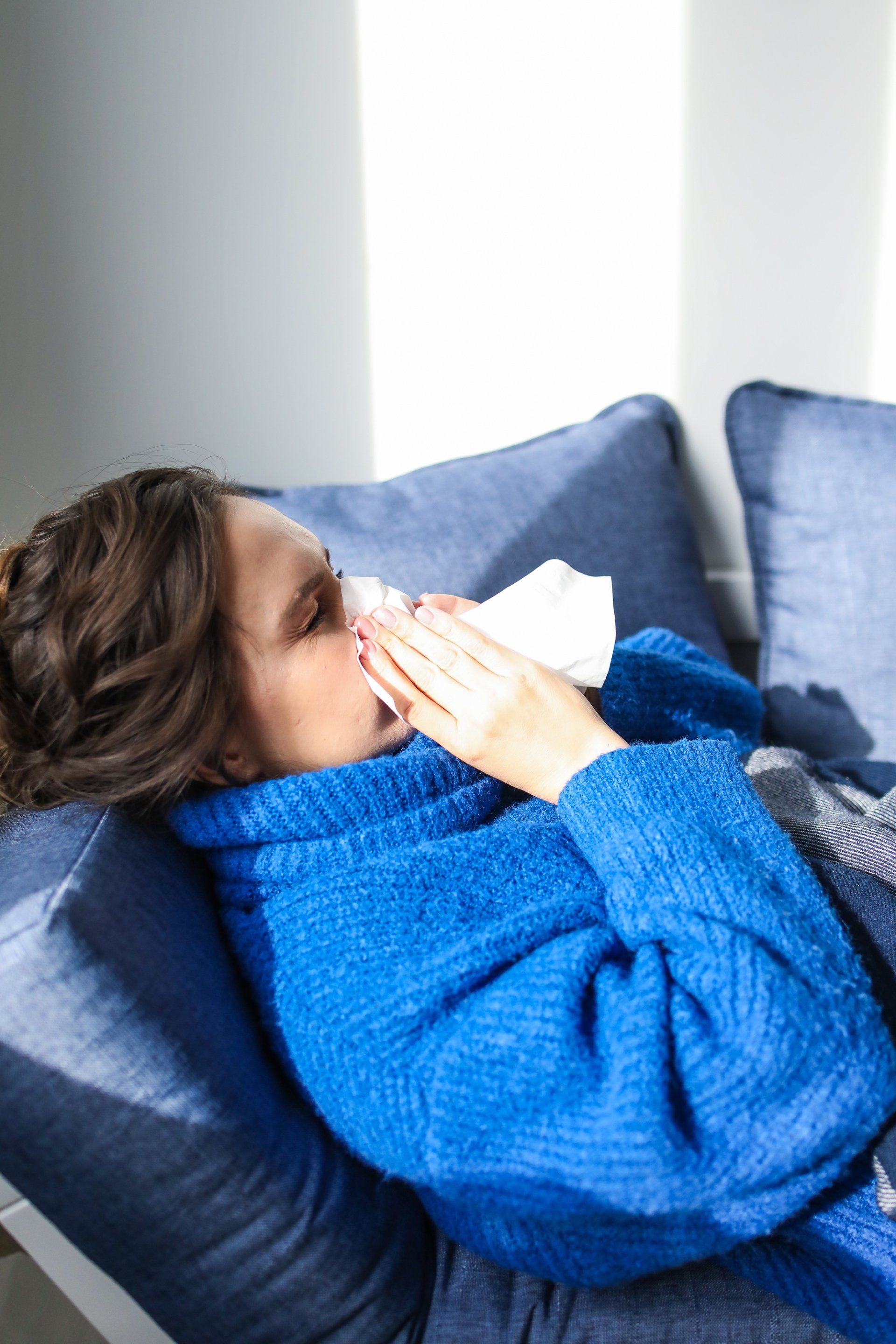Routine Illnesses
Routine Illness Care
Routine illnesses are typically an unavoidable inconvenience many people endure two or three times a year, if not more. Although often minor and short-lasting, common ailments could evolve into something worse if not properly monitored and treated. This is especially the case with older adults, children and people with pre-existing conditions that compromise their immune system. A regular virus is more likely to become irregular and harmful, potentially requiring hospitalization.
Knowing which symptoms are expected and which are cause for alarm is imperative to preserving you and your loved ones’ health.
Common Routine Illnesses
Common Cold
The common cold impacts the upper respiratory tract and causes coughing, sore throat and a runny nose for around seven to 10 days. Out of all the respiratory infections, it is the most prevalent and typically the least serious. Medical intervention usually isn’t necessary, and many people can manage symptoms with rest and over-the-counter medicines.
Influenza (Flu)
The flu is a highly contagious respiratory infection that is similar to the common cold but significantly more severe, including a high fever, body aches and fatigue for up to two weeks. While many flu cases resolve naturally, the risk of complications is high – especially in vulnerable populations like children and older adults. Be sure to consult with your healthcare professionals if your symptoms last longer than normal or are more severe than past flu infections.
Gastroenteritis (Stomach Flu)
Gastroenteritis is a digestive tract infection caused by parasites or viruses contracted by poor hygiene practices and contaminated food or drinks, which can lead to diarrhea, vomiting, nausea, abdominal cramps and occasionally a fever.
Urinary Tract Infection (UTI)
A UTI is when bacteria enters the urethra and infects the urinary tract, kidney or bladder, leading to pain while urinating, frequent urination and bloody urine in some cases. Some conditions make UTIs more likely, such as pregnancy and menopause. Sexual activity can also lead to a UTI. While a UTI can get better on its own, in most cases, antibiotics are the primary treatment.
Conjunctivitis (Pink Eye)
Conjunctivitis is when the membrane that lines your eyelids becomes infected, either due to allergies, virus or bacteria, resulting in redness, itching, tearing, burning sensation and pus discharge. This is a highly contagious infection that can easily spread without proper protection and quarantining.
Treatment will depend on the source – if it’s viral or due to allergies, it will usually go away on its own; but if it’s bacterial, you’ll typically need antibiotic eye drops. If you’re noticing symptoms of pink eye, you should call your healthcare provider to verify your best course of action.
How to Lower Your Risk of a Routine Illness
- Wash hands frequently with soap and water for at least 20 seconds.
- Use alcohol-based hand sanitizers when soap and water are not available.
- Cover your mouth and nose with a tissue or your elbow when coughing or sneezing.
- Avoid close contact with sick individuals and stay away from others if you’re sick to limit the spread of contagious illnesses.
- Keep surfaces clean and disinfect frequently touched objects.
- Eat a balanced diet, exercise regularly, get enough sleep and manage your stress levels to protect your immune system.
When to Seek Medical Care
While many routine illnesses can be managed at home with rest and over-the-counter medications, it's important to seek medical care if your symptoms worsen or persist, or if you have underlying health conditions. At St. Hope Healthcare, our experienced physicians are here to provide personalized medical care and comprehensive support with dedicated patient resources.
Our primary care physicians are ready and eager to help you with prompt treatment and guidance so you can protect your health all year long and live more comfortably.
Routine Illnesses FAQs
How long do routine illnesses typically last?
The duration will depend on the specific ailment and individual factors like your immune system. Most routine illnesses like the common cold resolve within a week, while more severe infections like the flu can last for much longer. Although some lingering symptoms are normal, seeing a doctor is recommended if they persist for an abnormally long period of time.
Should I stay home from work or school if I'm sick?
It's generally recommended to stay home and rest when you're sick. Not only can this help you recover more effectively, but since many routine illnesses are contagious and can spread through close contact with infected individuals or contaminated surfaces, staying home can limit the viral spread. Some may not feel like staying home is an option if you don’t have a lot of sick days available – but if your fever is over 100 and your symptoms are severe, staying home is a necessity for you and your workplace.
You can contact the Houston doctors at St. Hope Healthcare for a note if it’s required by your employer.




